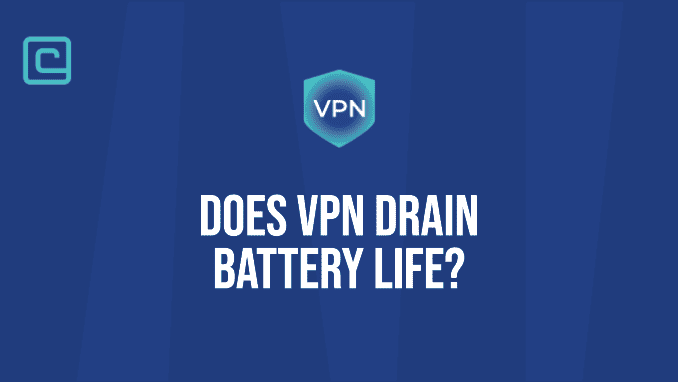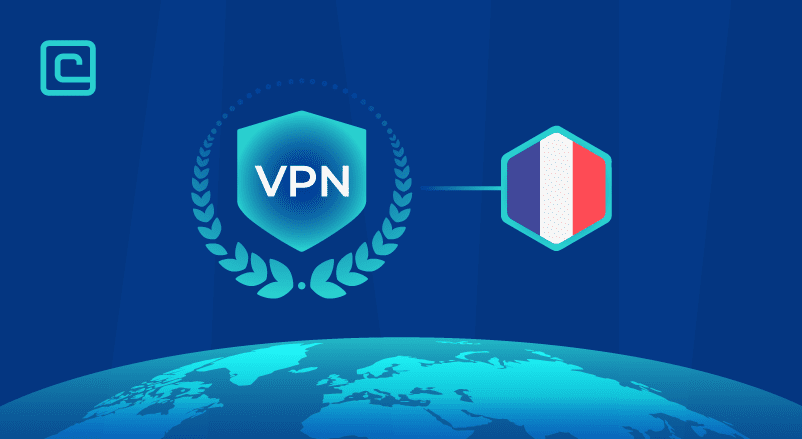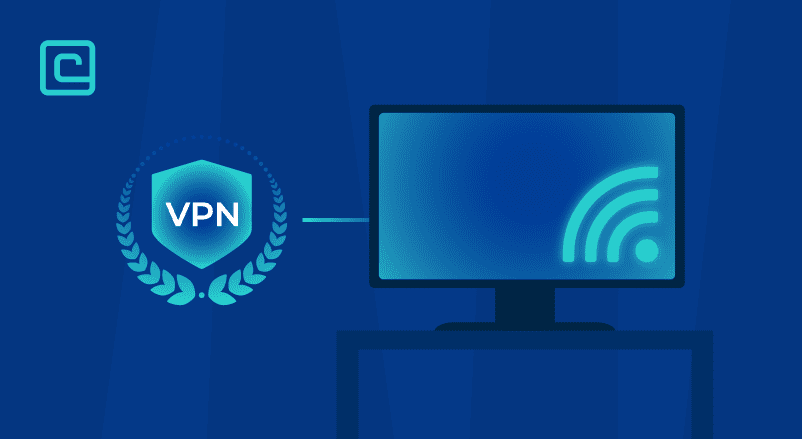Does a VPN Drain Battery Life? 2024 Test Results Reveal How Much

Are you wondering why your device seems to be running out of juice faster with a VPN? It may be a VPN that drains your battery in the background.
In this article, we will discuss how a VPN might impact your device’s battery life. We’ll explore the details of how a VPN interacts with your device’s power.
Discover practical tips on how to manage your VPN usage to keep your battery lasting longer.
Getting to the bottom of battery drainage can be a game-changer for anyone on the go. In the forthcoming sections, we’ll explain how a VPN can be a silent battery consumer and how much battery it uses.
Does a VPN Drain Battery Life?
Yes, using a VPN can affect your battery life. Any app, including VPNs, running in the background will use more battery. VPN apps run all the time.
Using a VPN can use 2-15% more battery power.
Several factors affect how much battery a VPN uses:
- If you use a VPN protocol that increases CPU usage.
- If the VPN apps are optimized for mobile devices.
- If you use mobile data instead of a wireless connection.
- If you have a weak but active connection to the internet.
- If you use other apps at the same time.
Test Your VPN Knowledge – Take A Quiz!
How Much Battery Does a VPN Use? Experiment Test Results
We did a series of tests to see how much battery a VPN uses. We tested battery life with and without a VPN on different devices. We used NordVPN for our tests.
The devices we tested were:
- iPhone 12
- Samsung Galaxy S21
- Dell XPS 13 laptop
We did the same web browsing activities for one hour with and without the VPN on each device.
iPhone VPN Battery Drain Test
For the iPhone test, we used an iPhone 12 with the latest iOS. Here’s what we found:
| Activity | VPN Off (%) | VPN On (%) | Battery Drain Increase (%) |
|---|---|---|---|
| Browsing | 4 | 6 | 2 |
The iPhone 12 saw a 2 percentage point increase in battery use with VPN on. VPN use did raise battery drain, but the effect was small over the test time.
Android VPN Battery Drain Test
Then, we tested a Samsung Galaxy S21 on Android. Here are the results:
| Activity | VPN Off (%) | VPN On (%) | Battery Drain Increase (%) |
|---|---|---|---|
| Browsing | 5 | 8 | 3 |
The Android test showed a 3 percentage point increase in battery usage with the VPN on. The Galaxy S21 was more affected than the iPhone. Yet, it’s clear that a VPN impacts battery life over time.
Laptop VPN Battery Drain Test
For the laptop test, a Dell XPS 13 was chosen. It’s a popular choice for both professionals and casual users:
| Activity | VPN Off (%) | VPN On (%) | Battery Drain Increase (%) |
|---|---|---|---|
| Web Browsing | 8 | 10 | 2 |
The Dell XPS 13 saw a 2 percentage point rise in battery drain when using a VPN. This was similar to the iPhone 12’s experience. The increase happened during web browsing activities.
Overall, the tests revealed a noticeable change in battery use with a VPN on.
But, the rise in battery use isn’t extremely high for any device tested. It shows that a VPN does use more battery, but how much varies by device and its battery life.
Why Does a VPN Drain More Battery?
Several factors contribute to a VPN’s battery drain. These include encryption levels, VPN protocols, CPU optimization, background activities, and Wi-Fi signal strength.
- Encryption – Encrypting and decrypting data uses your device’s power. The more advanced the VPN encryption level is, the more power it requires.
- Protocol – Some security protocols use more power than others. For example, OpenVPN uses more power than WireGuard and IKEv2/IPsec.
- Non-optimized CPUs – New smartphones have hardware-accelerated AES encryption. This speeds up encryption without draining the battery. Older devices, lacking this feature, drain the battery faster.
- Background Use – Running your VPN app in the background uses more battery. This is because other apps also use power. Apps need power from both your CPU and mobile radio chip.
- Poor Cellular Signal Strength – A weak cellular signal drains the battery. Your device works harder to connect, using more power. Using a VPN with poor cellular signal strength drains the battery even more.
How to Reduce VPN Battery Drain?
To reduce VPN battery drain, take proactive steps. Here are some tips:
- Lower the Encryption Level: Choose lower encryption levels in your VPN settings. This reduces battery usage but lowers security.
- Use a Lightweight VPN Protocol: Protocols like WireGuard are more efficient. They use less battery than older protocols like OpenVPN or IPSec.
- Change VPN Settings: Enable your VPN’s “battery saver” or “power saving” mode. This can reduce battery drain.
- Disconnect When Not Needed: Only use your VPN when necessary. Constantly connected VPNs drain more battery.
- Limit Background Data: Restrict background data for apps not using the VPN. This saves battery.
- Update Your VPN App: Keep your VPN app updated. Updates often include battery-saving features.
- Adjust Screen Settings: Lower screen brightness and timeout to save battery life.
- Close Unnecessary Apps: Closing background apps reduces battery strain when using a VPN.
- Monitor Battery Usage: Watch battery usage stats to find patterns that drain your battery too much.
Following these tips can help you save battery life while using a VPN.
Best VPNs for Battery Longevity – our detailed list:
1. NordVPN

| 🌐 Website: | nordvpn.com |
| 🏢 Headquarters: | Panama |
| 📍Servers/Countries: | 5800+ servers in 60 countries |
| ₿ Accepts Cryptocurrency | Yes |
| 💸 Deals & Coupons | Get 68% off + 3 months extra |
NordVPN is our top VPN service. It offers secure and fast protocols. It also has a bug-free VPN app for mobile with many security features to protect your online data.
For example, it has Threat Protection Lite. This blocks ads and malicious sites. Your internet speed will be faster, and your battery will last longer. This feature is optimized for mobile, so it won’t use too much power.
The VPN uses IKEv2/IPsec and NordLynx, its proprietary protocol. Both provide a lightweight VPN connection.
It also has 5,000+ servers in 55+ countries. Connecting to a nearby server can decrease battery usage. Plus, it offers 6 simultaneous connections, so you can connect 6 mobile devices at once.
Pros
- Thousands of lightning-fast and well-optimized servers
- Unblocks all the major streaming sites
- Fully supports Torrenting and P2P
- Strict no-logs policy and RAM-disk servers
- Ad blocker and malware protection features
- Robust security features and military-grade encryption to protect you from DDoS attacks and other online threats
- 24/7 live chat support
- 30-day money-back guarantee
Cons
- Only 6 simultaneous connections
- No free trial
2. Surfshark

| 🌐 Website: | surfshark.com |
| 🏢 Headquarters: | The British Virgin Islands |
| 📍Servers/Countries: | 3,200+ servers in 100 countries |
| ₿ Accepts Cryptocurrency | Yes |
| 💸 Deals & Coupons | Save 84% Now! |
Surfshark lets you connect unlimited devices, which is very convenient. Its mobile VPN app is easy to install in less than 3 minutes.
Surfshark has IKEv2/IPsec and WireGuard, available for iOS and Android.
It also has 3200+ servers in 90+ countries. Connecting to a nearby server can decrease battery usage.
Pros
- A very affordable VPN provider
- Unlimited simultaneous connections
- Ad-blocking feature
- Unblocks streaming platforms
- Ad blocker and malware protection features
- A fast and light WireGuard protocol
- Allows split-tunneling and has a multi-hop VPN feature
- No-log policy and robust security features
- GPS spoofing on Android devices
- 30-day money-back guarantee
Cons
- No free version
- Does not allow P2P seeding
3. PrivateVPN

| 🌐 Website: | privatevpn.com |
| 🏢 Headquarters: | Sweden |
| 📍Servers/Countries: | 200 servers in 60 countries |
| ₿ Accepts Cryptocurrency | Yes |
| 💸 Deals & Coupons | Save 85% Now! |
PrivateVPN has optimized apps for Android and iOS. It’s easy to use and can be installed in less than 2 minutes.
This VPN is more suitable for iOS users, supporting IKEv2/IPsec. On Android, only OpenVPN is available.
PrivateVPN has 200+ servers in 60+ countries. Its servers are well-distributed worldwide, so you can find a nearby server. It also allows 10 simultaneous connections.
Pros
- Supports P2P traffic and allows port forwarding
- Unlimited bandwidth and great speeds
- Unblocks most streaming platforms
- Zero-logging policy
- Free Static IP servers
- A fast and light WireGuard protocol
- 10 simultaneous connections
- 30-day money-back guarantee
Cons
- Not as many servers as other VPN providers
- No split-tunneling
4. ExpressVPN

| 🌐 Website: | expressvpn.com |
| 🏢 Headquarters: | The British Virgin Islands |
| 📍Servers/Countries: | 3000+ servers in 94 countries |
| ₿ Accepts Cryptocurrency | Yes |
| 💸 Deals & Coupons | +3 months FREE! |
ExpressVPN is optimized against battery drain. It has apps for both iOS and Android devices. You can use the VPN on 5 simultaneous connections.
This VPN uses Lightway, its proprietary protocol. It’s programmed for less battery usage and is open-source. Lightway is available on both iOS and Android.
ExpressVPN also has a dedicated router app. This makes it easy to set up, so all your mobile apps can use VPN encryption.
It has 3,000 servers in 90+ countries. Connecting to a nearby server ensures fast speeds and prevents battery drain.
Pros
- Works with streaming
- Supports torrenting
- No-logs policy
- TrustedServer technology with RAM-only servers
- Premium security features
- 30-day money-back guarantee
Cons
- Expensive subscription plans
- Only 5 simultaneous connections
5. Atlas VPN

| 🌐 Website: | atlasvpn.com |
| 🏢 Headquarters: | United States |
| 📍Servers/Countries: | 1000 servers in 49 locations |
| ₿ Accepts Cryptocurrency | Yes |
| 💸 Deals & Coupons | 85% OFF + 3 Months FREE! |
Atlas VPN is great for a free mobile VPN app. Its free plan gives you access to 3 locations in the Netherlands and the US. You can use the VPN on unlimited devices with the free plan.
AtlasVPN has user-friendly apps for Android and iOS devices. You can use WireGuard and IKEv2/IPsec on both platforms.
The paid plans offer 700+ servers in 40+ locations. Its server network is smaller, but you can easily find a nearby server.
Pros
- Very affordable plans and it has a free version
- Fast Speeds
- Helpful against an ISP throttling your connection
- Unlimited device support
- WireGuard protocol, DNS leak protection, and strong security features
- Torrenting-friendly
- Unblocks streaming services
- 30-day money-back guarantee
Cons
- Limited Linux app
- Based in the US
- Not so many servers
Conclusion — VPNs and Battery Usage
VPN services might use more battery, from 2% to 15%. But they don’t use more battery than other apps. Battery drain depends on many things.
A phone’s power use varies. It depends on the device, internet quality, and VPN encryption.
Our top VPN picks use safe protocols for mobiles.
VPN Battery Drain FAQs
Does a VPN Affect Battery Health?
A VPN itself doesn’t harm your battery long-term. But, it can make your battery work harder each day. This might shorten its life over time.
Does a VPN Drain Your Phone?
Yes, a VPN can make your phone’s battery drain faster. This is because it encrypts and decrypts your data. The impact depends on your device and how you use it.
What Is the Best Battery-Friendly VPN?
WireGuard protocol-based VPNs, like NordVPN, are top choices for saving battery. They’re efficient and have apps designed to use less power.
Should I keep my VPN connected all of the time?
Keeping your VPN on all the time keeps your data safe. But, if you’re worried about battery life, turn it off when you don’t need it. Learn more here.
VPN Expert, BEng in Network Engineering

